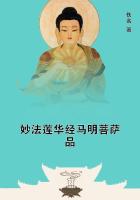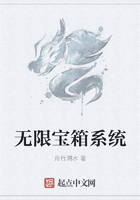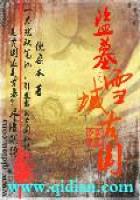"It sounds true," said Donald reflectively. "I see, young lady, where one is going to have to measure his words and think before he talks to you.""Pretty thought!" said Linda lightly. "We'll have a great time if you must stop to consider every word before you say it.""Well, anyway," said Donald, "when are we going to have that fight which was the purpose of our coming together?""Why, we're not ever going to have it," answered Linda. "I have got nothing in this world to fight with you about since you're doing your level best to beat Oka Sayye. I have watched your head above the remainder of your class for three years and wanted to fight with you on that point.""Now that's a queer thing," said Donald, "because I have watched you for three years and wanted to fight with you about your drygoods, and now since I've known you only such a short while, Idon't care two whoops what you wear. It's a matter of perfect indifference to me. You can wear French heels or baby pumps, or go barefoot. You would still be you.""Is it a truce?" asked Linda. I"No, ma'am," said Donald, "it's not a truce. That implies war and we haven't fought. It's not armed neutrality; it's not even watchful waiting. It's my friend, Linda Strong. Me for her and her for me, if you say so."He reached out his hand. Linda laid hers in it, and looking into his eyes, she said: "That is a compact. We'll test this friendship business and see what there is to it. Now come on;let's run for the canyon."It was only a short time until the Bear Cat followed its trail of the previous Saturday, and, rushing across the stream, stopped at its former resting place, while Linda and Donald sat looking at the sheer-walled little room before them.
"I can see," said Linda, "a stronger tinge in the green. There are more flowers in the carpet. There is more melody in the birds' song. We are going to have a better time than we had last Saturday. First let's fix up our old furnace, because we must have a fire today."So they left the car, and under Linda's direction they reconstructed the old fireplace at which the girl and her father had cooked when botanizing in Multiflores. In a corner secluded from wind, using the wall of the canyon for a back wall, big boulders the right distance apart on each side, and small stones for chinking, Linda superintended the rebuilding of the fireplace.
She unpacked the lunch box, set the table, and when she had everything in readiness she covered the table, and taking a package, she carried it on a couple of aluminium pie pans to where her fire was burning crisply. With a small field axe she chopped a couple of small green branches, pointed them to her liking, and peeled them. Then she made a poker from one of the saplings they had used to move the rocks, and beat down her fire until she had a bright bed of deep coals. When these were arranged exactly to her satisfaction, she pulled some sprays of deer weed bloom from her bundle and, going down to the creek, made a lather and carefully washed her hands, tucking the towel she used in drying them through her belt. Then she came back to the fire and, sitting down beside it, opened the package and began her operations. On the long, slender sticks she strung a piece of tenderloin beef, about three inches in circumference and one fourth of an inch in thickness, then half a slice of bacon, and then a slice of onion. This she repeated until her skewer would bear no more weight. Then she laid it across the rocks walling her fire, occasionally turning it while she filled the second skewer. Then she brought from the car the bucket of pulp she had taken from the barrel cactus, transferred it to a piece of cheesecloth and deftly extracted the juice. To this she added the contents of a thermos bottle containing a pint of sugar that had been brought to the boiling point with a pint of water and poured over some chopped spearmint to which had been added the juice of half a dozen lemons and three or four oranges. From a small, metal-lined compartment, Linda took a chunk of ice and dropped it into this mixture.
She was sitting on the ground, one foot doubled under her, the other extended. She had taken off her hat; the wind and the bushes had roughened her hair. Exercise had brought deep red to her cheeks and her lips. Happiness had brought a mellow glow to her dark eyes. She had turned back her sleeves, and her slender hands were fascinatingly graceful in their deft handling of everything she touched. They were a second edition of the hands with which Alexander Strong had felt out defective nerve systems and made delicate muscular adjustments. She was wholly absorbed in what she was doing. Sitting on the blanket across from her Donald Whiting was wholly absorbed in her and he was thinking.
He was planning how he could please her, how he could earn her friendship. He was admitting to himself that he had very little, if anything, to show for hours of time that he had spent in dancing, at card games, beach picnics, and races. All these things had been amusing. But he had nothing to show for the time he had spent or the money he had wasted. Nothing had happened that in any way equipped him for his battle with Oka Sayye.















